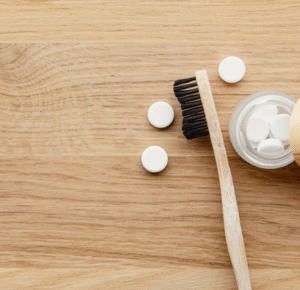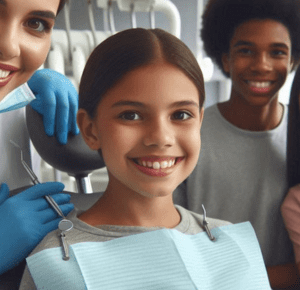
Participating in sports and recreational activities is essential to a healthy lifestyle, promoting physical fitness, teamwork, and social interaction. However, contact sports and collisions can significantly risk dental health, resulting in painful and potentially long-lasting consequences. Dental injuries, ranging from chipped teeth to concussions, affect millions of athletes annually, with children and adolescents being particularly vulnerable.
Fortunately, sports guards offered by the Stouffville dentist are a simple yet effective solution to prevent dental trauma. This vital protective gear is no longer optional but essential for athletes participating in contact sports, highlighting the crucial role of sports guards in preventing dental injuries and promoting lifelong oral well-being.
What is the prevalence of dental injuries in sports?
Dental injuries are a common occurrence in sports, affecting approximately 20% of athletes.
- According to the American Dental Association (ADA), over 5 million teeth are lost annually due to sports-related trauma, with the majority of these injuries occurring in children and adolescents.
- The National Federation of State High School Associations (NFHS) reports that dental injuries are most prevalent in contact sports such as football, hockey, basketball, soccer, and rugby.
- In fact, studies suggest that athletes participating in contact sports are 1.5 to 2 times more likely to experience dental injuries compared to non-contact sports.
- Furthermore, dental injuries can have long-term consequences, including tooth loss, root canal damage, and temporomandibular joint (TMJ) disorders.
What are the types of dental injuries?
There are many types of dental injuries, namely:
- Tooth fractures
- Tooth avulsions (knocked-out teeth)
- Tooth luxations (dislodged teeth)
- Dental concussions
- Soft tissue injuries (lip, tongue, and cheek lacerations)
What is the importance of sports guards?
Sports guards, also known as mouthguards, are protective devices worn over the teeth to prevent dental injuries. They:
- Absorb and distribute impact forces
- Reduce tooth mobility and displacement
- Protect surrounding soft tissues
- Enhance athletic performance by reducing anxiety and fear of injury
What are the types of sports guards?
Your child’s pediatric dentist may recommend any one of the following sports guards based on the method of preparation:
- Custom-Fitted Sports Guards: Made by dentists, these guards provide optimal protection and comfort.
- Boil-and-Bite Sports Guards: Available over the counter, these guards are molded to fit individual teeth.
- Stock Sports Guards: Pre-fabricated, one-size-fits-all guards offering minimal protection.
- Moldable Sports Guards: Thermoplastic guards molded to fit individual teeth.
How are sports guards beneficial?
Sports guards have become popular for children involved in contact sports since they offer a series of potential benefits, including:
- Reduced Risk of Dental Injuries: Up to 90% reduction in dental trauma.
- Improved Athletic Performance: Enhanced confidence and focus.
- Cost-Effectiveness: Preventing dental injuries saves time and money.
- Increased Comfort: Custom-fitted guards ensure optimal fit and comfort.
- Long-Term Oral Health: Preventing dental injuries promotes lifelong oral health.
Which sports require sports guards?
Your child may require a sports guard for the following sports:
- Football
- Hockey
- Basketball
- Soccer
- Rugby
- Baseball/Softball
- Martial Arts
What are some essential tips for parents?
As parents, you must remember the following tips:
- Ensure proper fitting and maintenance.
- Encourage athletes to wear sports guards during practice and competition.
- Monitor dental health and address concerns promptly.
- Educate athletes on proper oral hygiene and injury prevention.
Bottom line
Sports guards play a vital role in preventing dental injuries in athletes participating in contact sports. By absorbing and distributing impact forces, sports guards protect teeth, surrounding soft tissues, and overall oral health. The evidence is clear: wearing a sports guard significantly reduces the risk of dental trauma, with studies showing a reduction in dental injuries by up to 90%. As dental injuries can have long-lasting consequences, both physically and emotionally, the importance of sports guards cannot be overstated. Parents, coaches, and athletes must prioritize oral health and safety by making sports guards a mandatory piece of equipment. By doing so, we can ensure that athletes can participate in sports with confidence, protecting their smiles and promoting lifelong oral well-being.






